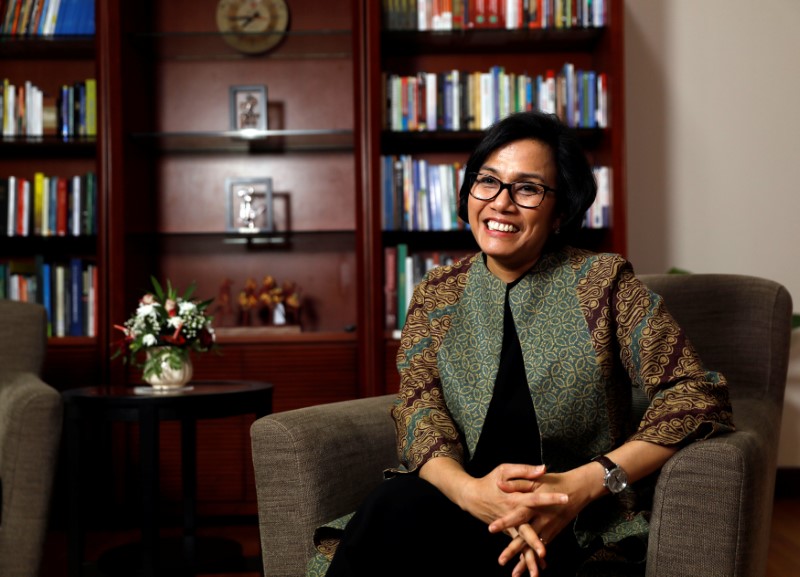 © Reuters. FILE PHOTO: Indonesian Finance Minister Sri Mulyani Indrawati smiles during an interview with Reuters at the Finance Ministry in Jakarta
© Reuters. FILE PHOTO: Indonesian Finance Minister Sri Mulyani Indrawati smiles during an interview with Reuters at the Finance Ministry in JakartaBy TABITA DIELA
JAKARTA (Reuters) – Indonesia’s finance minister, pledging steady support for investment and exports, said on Wednesday the government won’t be distracted from its economic reform program by provincial elections this year.
In 2018, Indonesia is due to hold scores of provincial elections, ahead of a presidential vote in 2019. The local elections have caused some concern that a heated political environment could hamper efforts by President Joko Widodo’s administration to push through reforms.
In a note on the 2018 outlook for Asia-Pacific sovereign credits, Moody’s Investors Service said on Wednesday that in India and Indonesia, regional elections are “likely to slow down any reform momentum”.
Finance Minister Sri Mulyani Indrawati expressed disagreement with that view.
“I want to point out that any reasoning that says this year the government will be distracted and not push through its reform programs, that is wrong,” she told reporters.
Last year, a bruising election for governor of the capital Jakarta saw political and religious tensions in the world’s biggest Muslim-majority country hit the highest in decades.
Indrawati said the government “is now sitting together, coordinating (and) collaborating to make concrete improvements in investment and to support exports”.
She said there was a change of “mindset” to resolve problems facing investors and noted that authorities were also addressing issues faced by small and medium enterprises in paying taxes.
“Procedures will be easier, the terms will be simpler and everything can be done digitally,” she said.
The government has also rolled out a series of regulatory changes intended to encourage foreign investment and reduce the dependence on private consumption. Among them are steps to ease working with Indonesia’s notorious bureaucracy.
However, cutting red tape has proved difficult. Last year, Widodo told off cabinet ministers for issuing regulations that will “add to bureaucracy and increase complications” for businesses wanting to expand or invest.
Foreign direct investment (FDI) rose 12 percent in the third quarter of 2017 from a year earlier in rupiah terms, compared with a 10.6 percent annual increase in April-June.
The government has made progress in building infrastructure, although sluggish growth in consumption and bank lending has meant policymakers have struggled to push economic growth significantly above 5 percent in recent years.
Fusion Media or anyone involved with Fusion Media will not accept any liability for loss or damage as a result of reliance on the information including data, quotes, charts and buy/sell signals contained within this website. Please be fully informed regarding the risks and costs associated with trading the financial markets, it is one of the riskiest investment forms possible.
Source: Investing.com





























